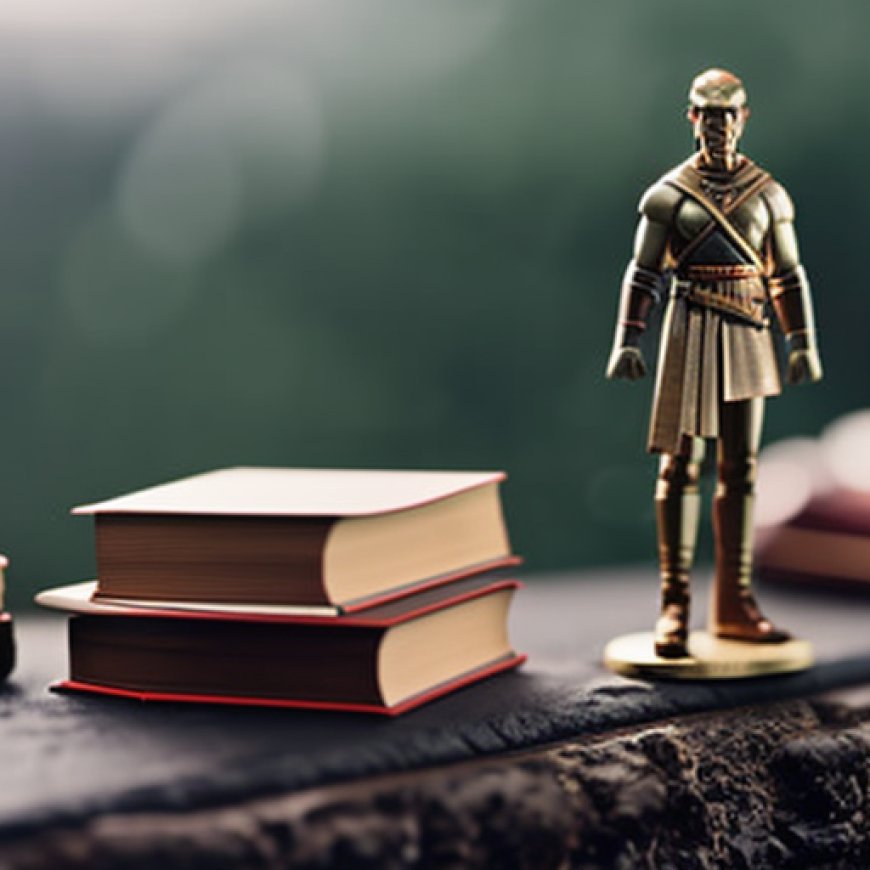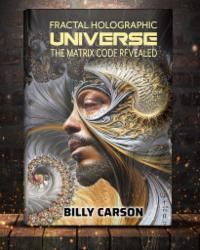Billy Carson Expands Literary Impact With Bestselling Books on Ancient Wisdom, Consciousness, and Financial Empowerment


Billy Carson’s Works Bridge the Gap Between Ancient Knowledge and Modern-Day Success, Inspiring Readers to Transform Their Lives
MIAMI, FL / ACCESSWIRE / September 26, 2024 / Billy Carson, bestselling author, financial literacy advocate, and CEO of 4biddenknowledge Inc., is reshaping the conversation on human consciousness and personal empowerment through his expanding catalog of groundbreaking books. Carson’s works, including The Compendium of the Emerald Tablets, Woke Doesn’t Mean Broke, The Chronicles of the Anunnaki, Fractal Holographic Universe, and The Epic of Humanity (co-authored with Matthew LaCroix), have captivated global audiences by merging ancient wisdom, advanced science, and practical financial insights.

Picture of the Book Cover
Billy Carson’s writings bring esoteric and often overlooked knowledge into the mainstream, making complex topics accessible to readers eager to explore the mysteries of ancient civilizations, consciousness, and personal transformation. In The Compendium of the Emerald Tablets, Carson reintroduces the ancient texts with modern interpretations, while Fractal Holographic Universe delves into the intersections of quantum physics and consciousness. The Epic of Humanity, co-authored with Matthew LaCroix, explores the origins of human civilization and its future. Meanwhile, Woke Doesn’t Mean Broke bridges the gap between financial literacy and spiritual growth, empowering readers to build wealth while expanding their consciousness.
As the founder of 4biddenknowledge Inc., Carson leads a pioneering media company dedicated to producing conscious content that challenges mainstream narratives. 4biddenknowledge Inc. publishes books, hosts educational events, and operates 4biddenknowledge TV, a streaming platform featuring documentaries, series, and podcasts on topics like ancient history, health and wellness, advanced science, and financial literacy. Co-led by wellness advocate Elisabeth Carson, the company is committed to empowering individuals by expanding awareness and fostering holistic personal growth.
Billy Carson’s bestselling books have earned him widespread recognition as a thought leader, and his work continues to inspire truth-seekers and knowledge enthusiasts worldwide.
For more information on Billy Carson’s books and other offerings, visit 4biddenknowledge Inc..
About 4biddenknowledge Inc.:
4biddenknowledge Inc. is a leading media company at the forefront of conscious content, exploring topics like human consciousness, ancient civilizations, financial literacy, and health and wellness. Founded by Billy Carson and co-led by wellness advocate Elisabeth Carson, the company offers books, streaming media, podcasts, and educational events designed to empower individuals through knowledge.
Media Contact:
Nikki Sheppard
4biddenknowledge Inc.
Email: [email protected]
Website: https://4biddenknowledge.com
Contact Information
Nikki Sheppard
Assistant Copywriter
[email protected]
SOURCE: 4biddenknowledge Inc.
View the original press release on newswire.com.
SDGs, Targets, and Indicators
1. Which SDGs are addressed or connected to the issues highlighted in the article?
- SDG 4: Quality Education
- SDG 8: Decent Work and Economic Growth
- SDG 9: Industry, Innovation, and Infrastructure
- SDG 10: Reduced Inequalities
- SDG 11: Sustainable Cities and Communities
- SDG 17: Partnerships for the Goals
The article highlights the work of Billy Carson, which includes topics related to ancient civilizations, consciousness, personal transformation, financial literacy, and holistic personal growth. These topics are connected to the Sustainable Development Goals mentioned above.
2. What specific targets under those SDGs can be identified based on the article’s content?
- SDG 4.4: By 2030, substantially increase the number of youth and adults who have relevant skills, including technical and vocational skills, for employment, decent jobs, and entrepreneurship.
- SDG 8.5: By 2030, achieve full and productive employment and decent work for all women and men, including for young people and persons with disabilities, and equal pay for work of equal value.
- SDG 9.5: Enhance scientific research, upgrade the technological capabilities of industrial sectors in all countries, in particular developing countries, including, by 2030, encouraging innovation and substantially increasing the number of research and development workers per 1 million people and public and private research and development spending.
- SDG 10.2: By 2030, empower and promote the social, economic, and political inclusion of all, irrespective of age, sex, disability, race, ethnicity, origin, religion, or economic or other status.
- SDG 11.4: Strengthen efforts to protect and safeguard the world’s cultural and natural heritage.
- SDG 17.16: Enhance the global partnership for sustainable development, complemented by multi-stakeholder partnerships that mobilize and share knowledge, expertise, technology, and financial resources.
The targets mentioned above are relevant to the issues discussed in the article, such as promoting relevant skills for employment, achieving full and productive employment, encouraging innovation, promoting social and economic inclusion, safeguarding cultural heritage, and enhancing global partnerships for sustainable development.
3. Are there any indicators mentioned or implied in the article that can be used to measure progress towards the identified targets?
- Number of youth and adults with relevant skills for employment and entrepreneurship.
- Employment rate and equal pay for work of equal value.
- Number of research and development workers per 1 million people and research and development spending.
- Measures of social, economic, and political inclusion.
- Efforts to protect and safeguard cultural and natural heritage.
- Existence of multi-stakeholder partnerships that mobilize and share knowledge, expertise, technology, and financial resources.
The article does not explicitly mention specific indicators, but the identified targets can be measured using the indicators mentioned above. These indicators can help track progress towards achieving the targets under the relevant SDGs.
SDGs, Targets, and Indicators
| SDGs | Targets | Indicators |
|---|---|---|
| SDG 4: Quality Education | 4.4: By 2030, substantially increase the number of youth and adults who have relevant skills, including technical and vocational skills, for employment, decent jobs, and entrepreneurship. | Number of youth and adults with relevant skills for employment and entrepreneurship. |
| SDG 8: Decent Work and Economic Growth | 8.5: By 2030, achieve full and productive employment and decent work for all women and men, including for young people and persons with disabilities, and equal pay for work of equal value. | Employment rate and equal pay for work of equal value. |
| SDG 9: Industry, Innovation, and Infrastructure | 9.5: Enhance scientific research, upgrade the technological capabilities of industrial sectors in all countries, in particular developing countries, including, by 2030, encouraging innovation and substantially increasing the number of research and development workers per 1 million people and public and private research and development spending. | Number of research and development workers per 1 million people and research and development spending. |
| SDG 10: Reduced Inequalities | 10.2: By 2030, empower and promote the social, economic, and political inclusion of all, irrespective of age, sex, disability, race, ethnicity, origin, religion, or economic or other status. | Measures of social, economic, and political inclusion. |
| SDG 11: Sustainable Cities and Communities | 11.4: Strengthen efforts to protect and safeguard the world’s cultural and natural heritage. | Efforts to protect and safeguard cultural and natural heritage. |
| SDG 17: Partnerships for the Goals | 17.16: Enhance the global partnership for sustainable development, complemented by multi-stakeholder partnerships that mobilize and share knowledge, expertise, technology, and financial resources. | Existence of multi-stakeholder partnerships that mobilize and share knowledge, expertise, technology, and financial resources. |
Source: accesswire.com








